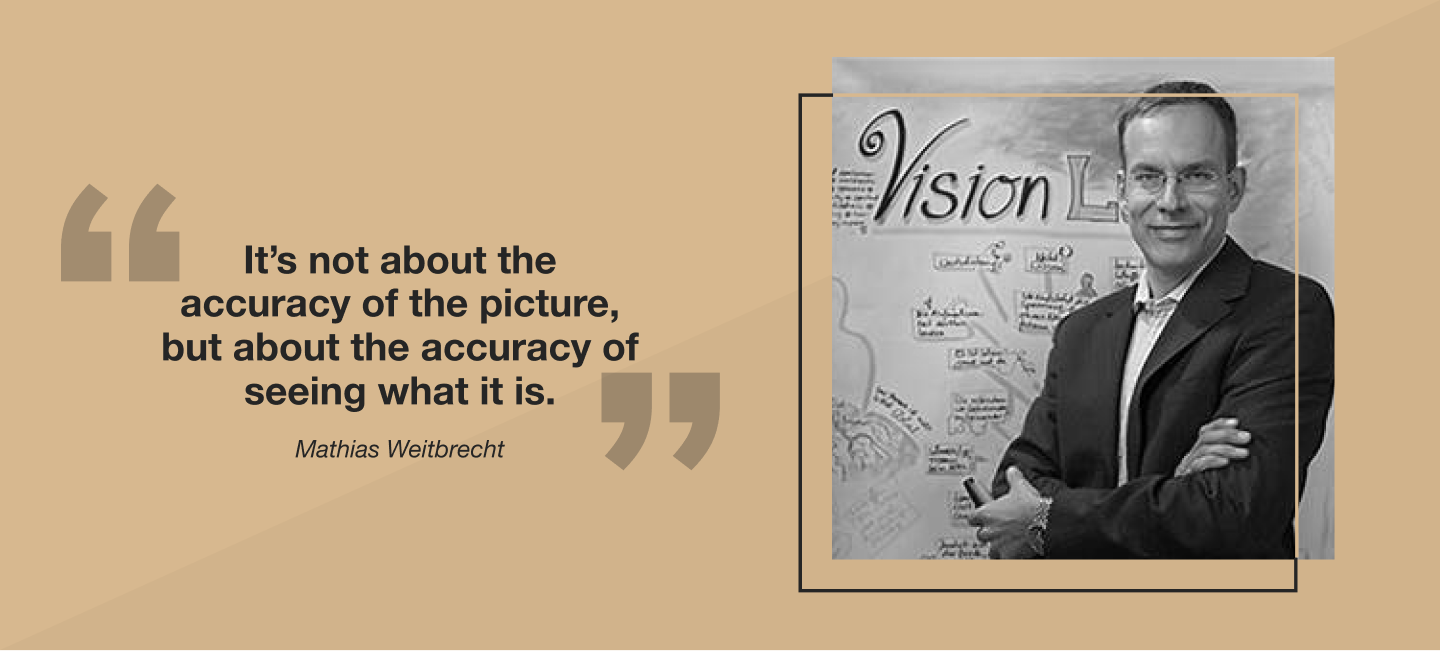Episode 012
May 22, 2019
012 – Put your meetings on the wall: The power of visual facilitation – with Mathias Weitbrecht

Sign up to download the free 1-page summary.
Intro
In episode 012, I talk to Mathias Weitbrecht, a visual facilitator and book author. When he started, 15 years ago, Mathias was one of the co-founders of visual facilitation in Germany. Mathias runs Visual Facilitators, a company that brings forth people’s potential by adding a new dimension to the process of collaboration – through visuals. We talk about the skillset facilitators need to use visuals in their workshops. And, you will learn that being artistic is not amongst them.
Don’t miss the part when Mathias explains the breakthrough visual facilitation can bring to the group by giving introverts and shy participants a voice. Tune in to learn how to use pen and paper to deliver workshops that work.
Don’t miss the next show: sign up to my newsletter and subscribe to the show through your podcast player.
Feeling inspired by the conversation in this episode? We can have our own – take a seat at my virtual table as part of a Mastermind Group.
A huge thank you must go to SessionLab, the sponsor of Workshops Work. Claim your free two months of SessionLab Pro now – this deal is exclusive to Workshops Work listeners!
Questions and Answers
1:24 What brought you to the field of visual facilitation?
3:17 How can someone become a visual facilitator who cannot draw?
6:03 How can you make sure that the images you draw represent the content participants hear?
8:06 Can you facilitate and visualize at the same time?
11:09 Does the group you facilitate require specific skills, such as speaking in metaphors?
12:14 What is the skillset a visual facilitator needs?
14:38 How much background knowledge about the specific workshop topic do you need to visualize the minutes in real-time?
15:47 Are there specific workshop types that (dis-)qualify from visual facilitation?
16:40 Would you use this technique in your private environment? And, how do your counterparts react?
21:27 In an earlier conversation you mentioned that we cannot reduce complexity but only make it more digestible. Can you elaborate on that?
22:41 Is there a risk of over-simplifying? What are the potential drawbacks of visual facilitation?
24:53 Does it happen that a group finds a completely new perspective on their issue through the visualization?
26:48 What are the exercises you would incorporate in your workshop design?
31:54 What is your advice to someone who wants to test the field of visual facilitation?
29:30 How do you perceive the risk of interpreting the content instead of translating it? How can the visual facilitator remain neutral?
32:43 What makes workshops work?
33:37 How do introverts react to visual facilitation?
34:42 What are you doing in workshops to get the energy back?
35:53 Do you use pen and paper or an iPad/ digital tools for visualization?
37:38 What shall the listener take away from our conversation?
38:42 How can we find you, reach out and hire you?
Links
Mathias’ business page: www.visualfacilitators.com
Our sponsor Session Lab
How to facilitate huge brainstorming sessions – with Frans Scheepens
